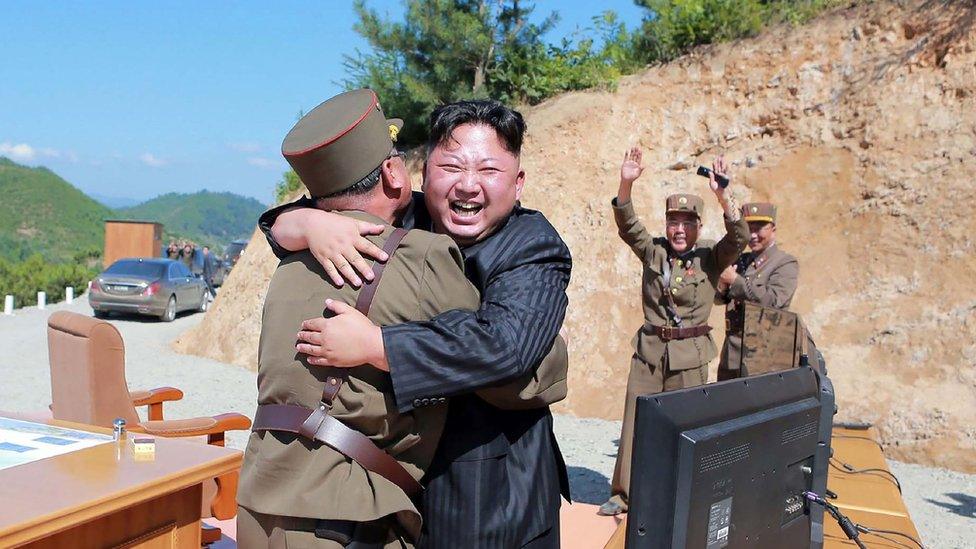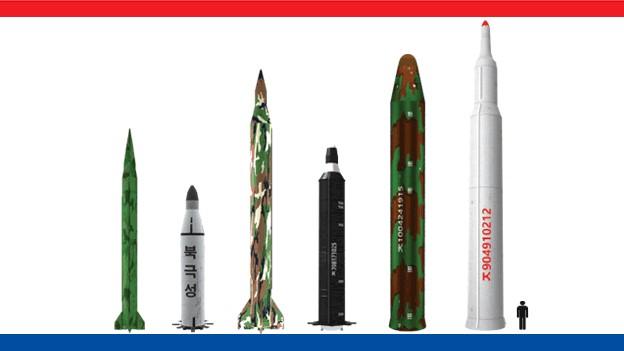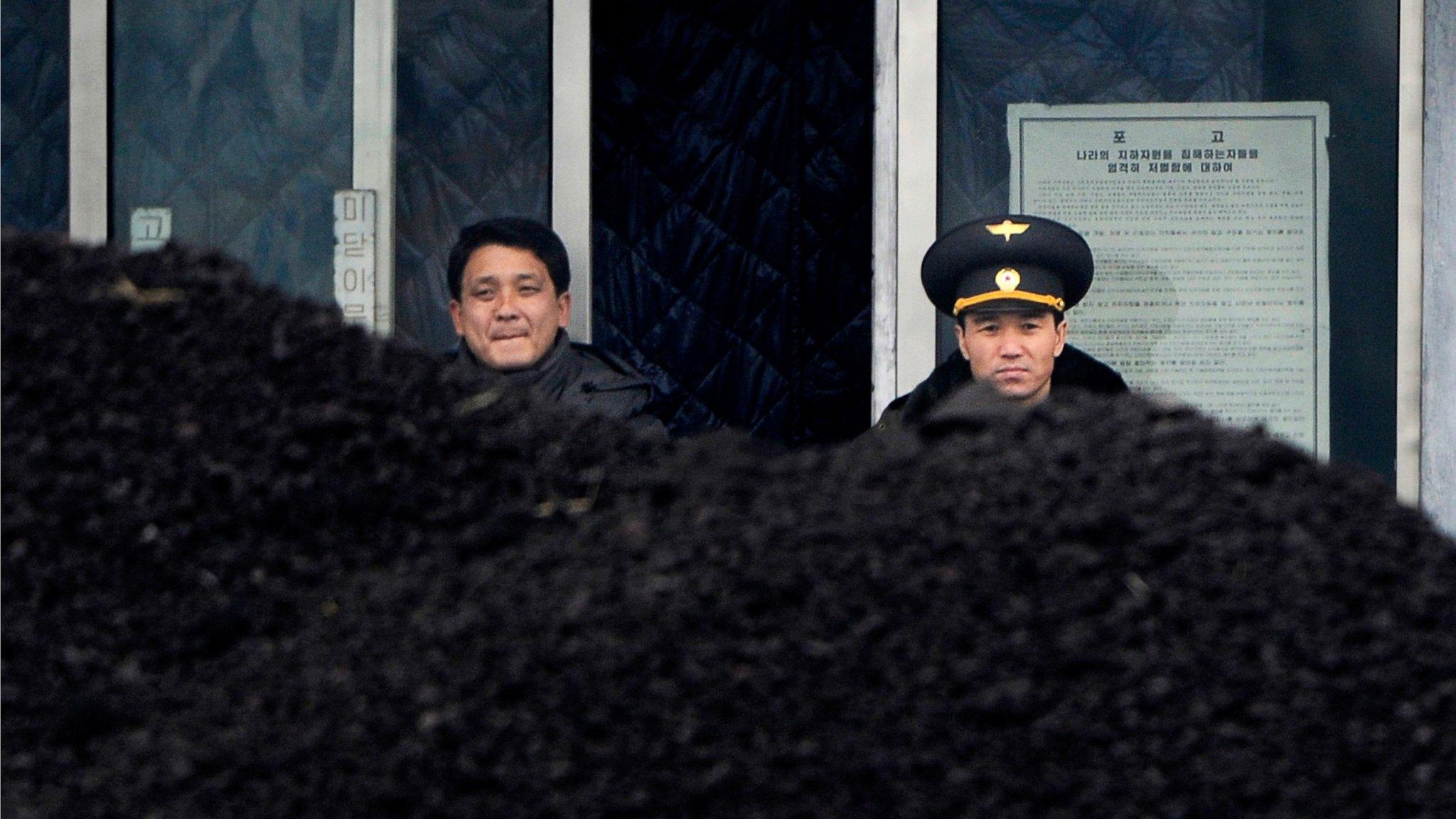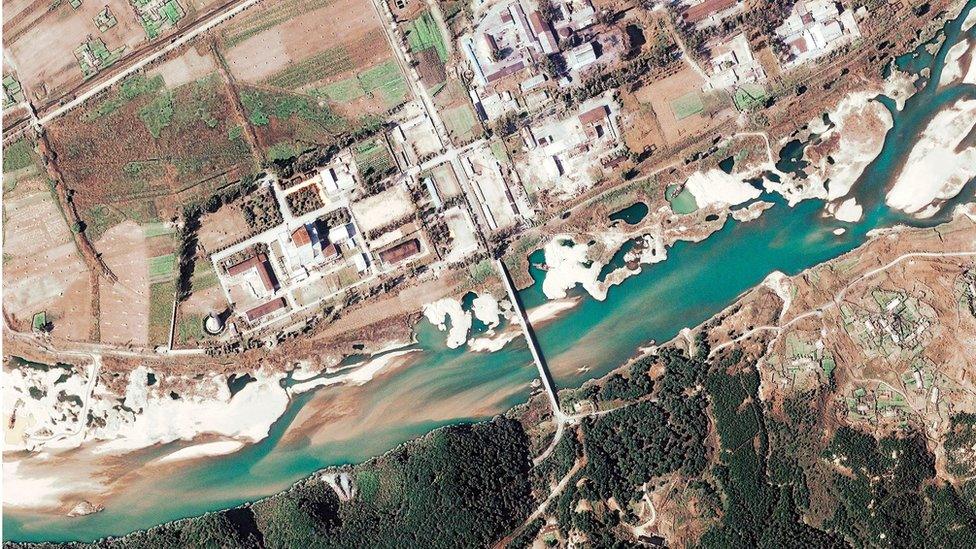North Korea missile test: Are Alaskans scared of Kim Jong-un?
- Published
"One expert says the missile could reach Alaska"
Robert Edwardson isn't quite old enough to remember the height of the Cold War, and he never practised ducking and covering under his school desk to hide from a nuclear blast. But at 51 he does remember the spectre of the Red menace, just over the water from his home state of Alaska.
In the early days of America's long stand-off with the Soviet Union, Alaska's proximity to the communist enemy led US military officials to fear an invasion. They recruited a network of citizen spies in the then-US territory - fishermen, bush pilots, miners - and instructed them to hide in key locations to monitor Soviet troop movements.
The threat of an invasion came and went and was replaced by the threat of the bomb. B-52s buzzed over Alaska at all hours, ready to head to Moscow. Missiles stationed in the state pointed at Soviet cities. Soviet missiles pointed back.
But the destruction then was mutually assured, said Mr Edwardson, who lives in Juneau. Everyone had too much to lose. Now there is a new nuclear threat, from North Korea, which successfully test-fired an Inter-Continental Ballistic Missile (ICBM) on Tuesday which might be able to hit Alaska.

North Korea has less to lose and is more unpredictable, said Mr Edwardson. "This seems like more of a threat," he said. "Recent history shows that they are rash. The fact that they are testing ICBMs at all is rash."
He blamed the Trump administration and administrations past for Alaska being in the firing line. "No US administration has dealt with North Korea effectively," he said. "But I think this one is probably the least capable of handling it."
Mr Trump is meeting world leaders this week in Poland. Mr Edwardson said he was "hopeful that the administration can make it less likely the North Koreans will get a fully working ICBM. Hopeful, but not optimistic."

North Korean leader Kim Jong-un celebrates the launch
If North Korea did obtain a fully working ICBM, Alaska's last line of defence might lie under a remote, World War II-era military base in Fort Greely. The base is home to 44 missile interceptors - the arsenal was boosted by 12 by President Obama in 2014 - which would, with luck, knock a North Korean nuke out of the sky.
The interceptors had about a 50% success rate in tests.
Alaskan congressman Don Young is lobbying the federal government for 28 more interceptors to be installed at Fort Greely. "The recent actions by North Korea, a rogue and irrational regime, underscores the importance of the Alaska's missile defence systems," a spokesman for Mr Young said in a statement after the launch.
Senator Lisa Murkowski called the test a "matter of grave concern" and "no cause for complacency".
North Korean state TV announces "successful" missile test
Not everyone was as worried. A hundred miles away from Fort Greely, in Fairbanks - Alaska's second city, where two military bases might make for good targets - resident Kelsey Skonberg said she was more concerned about the dangers of fishing as summer got underway.
"Recently there have been a lot of fishing accidents here," she said. "And, not to sound like a stereotypical Alaskan, but we've had a lot of bear attacks this year as well. We're a little bit more concerned about that than North Korea to be honest."
Residents of Fairbanks were unlikely to take any radical action, she said. "It wasn't that long ago we had that Russian flyby [by a bomber], now suddenly we're on the international stage again. It's not going to change our day-to-day lives. These things come and go."
- Published20 April 2017

- Published4 July 2017

- Published10 August 2017
- Published10 August 2017
